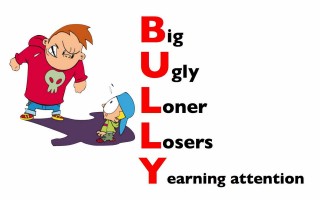Seven Tips For Talking To Your Teen About Addiction
Talking to your teen about addiction can be a difficult task. However, it’s a crucial subject that should be addressed early.
To get through to them, it’s important how you convey the message of substance abuse. These seven tips will make it easier to talk to your teenagers about addiction.
1. Don’t Be Accusatory
It may seem natural to approach the issue from a position of authority, but it never helps to be accusatory. If you are, your child’s natural inclination will be to act defensively.
Instead, to engage them in a meaningful way, bring up the issue in a neutral and objective way. Also, allow them to direct the conversation.
2. Start Early
You may think it wise to hold off discussing substance abuse until your children reach a certain age or level of maturity, but this is a mistake.
These other sources may not have their best interests in mind. No age is too young to begin the conversation.
By talking to them at an early age, you further gain the advantage of being able to frame the conversation, allowing your voice to be the first they hear on the subject.
3. Keep it a Regular Conversation
You need to understand talking to your teens about addiction is not a one-time conversation. Regular discussions about substance abuse through their adolescent years will help them stay off drugs.
Constantly let them know the dangers of substance abuse. More so, convey it in a meaningful way to them.
Let your teen know how substance abuse will affect their physical and mental health as well as their physical appearance.
4. Develop your Knowledge about Addiction
You cannot hope to have constructive talks with your teens about addiction if you are not knowledgeable about the subject. Teens have a sixth sense when it comes to detecting ignorance.
This could lead to the discussion becoming counterproductive. Learn everything you can about substance abuse so you can discuss the subject knowledgeably.
Be prepared to answer any question your child might have with clarity and authority.
5. Don’t Talk Down to Your Child
Also, be careful not to appear to be condescending. Talk to them like they are adults and they will respect you like adults.
More importantly, it will be easier for them to listen to what you have to say. Additionally, don’t assume they are not knowledgeable when it comes to substance abuse.
They might know a lot more than you think.
6. Avoid Trying to Scare Them
You may be tempted to scare your teens off drugs with tales of what has happened to other kids, but you should avoid this temptation, as it, too, can be counterproductive. Kids have a tendency to believe they’re unique and what happens to others will never happen to them.
They may even be tempted to prove that the same thing won’t happen to them. Instead, keep the focus on them and how substances will directly and adversely affect their lives.
7. Offer them Choices
It’s important to let your kids know they always have choices in life and they don’t need substances to have a good time or to fit in. Do everything you can to encourage healthy alternatives such as sports, extracurricular activities and community involvement.
Also, be willing to have an active role in these activities as well. Lead by example.
One million American children experience divorce every year. In the UK (2011 statistic) almost half of all children will see their parents – whether married or unmarried – split by their 16th birthdays.
Children of divorce are more vulnerable to a number of negative consequences from their parent’s divorce to include higher rates of depression, low self-esteem, juvenile delinquency and drug and alcohol abuse. Writer Ben Grant addresses the problem of substance addiction in youth.







This is fantastic information! You’ve provided a subject about a teenager’s life that is both inspiring and motivating! It’s beneficial for parents, and I like it.
Hi Prasanta,
Thank you for your comment. Addiction is a delicate issue that should be addressed with caution.
Rae.
This is excellent information. You’ve chosen a topic about the life of a teenager that is both inspiring and motivating! It is advantageous to parents, and I enjoy it.
Hi Prasanta,
Thank you for your comment. Addiction is a delicate issue that should be addressed with caution.
Rae.